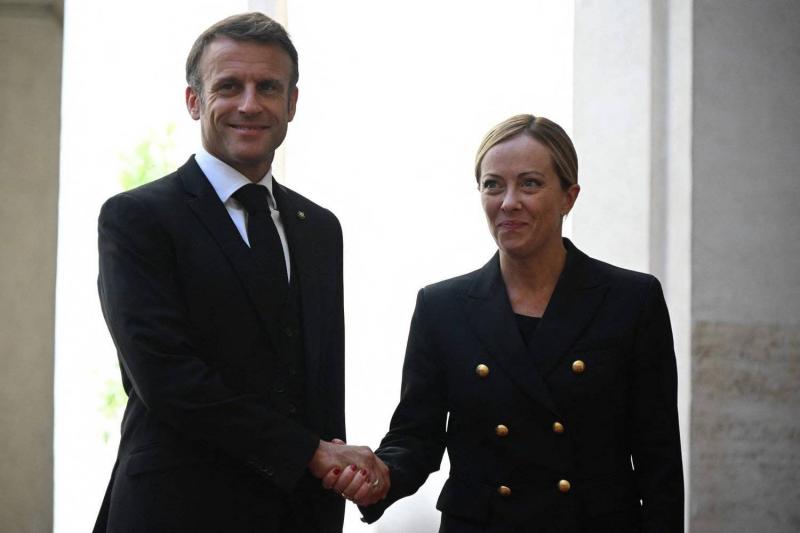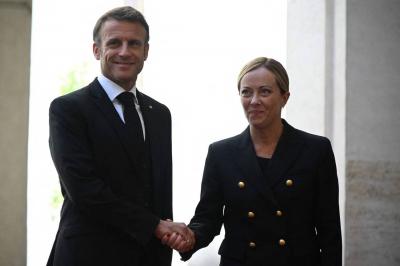On Friday, the final statement from the G7 summit hosted by Italy was released, containing a veiled reference to abortion after a clash between French President Emmanuel Macron and Italian Prime Minister Giorgia Meloni regarding abortion rights. The statement referenced "comprehensive sexual and reproductive health and rights for all" but did not include the word "abortion" itself—unlike the previous group's statement issued after the 2023 summit in Hiroshima, Japan, which explicitly called for "access to safe and legal abortion and post-abortion care."
U.S. officials indicated that President Joe Biden sought to maintain language related to reproductive rights after the summit host, Prime Minister Meloni, aimed to strip the statement of the word "abortion." The wording in the final statement appeared to be a diplomatic compromise, supporting the Hiroshima text without reproducing it directly. It reaffirms the "commitments of the seven countries stated in the Hiroshima Leaders' Declaration regarding everyone’s access to adequate, affordable, and high-quality healthcare services for women, including comprehensive sexual and reproductive health and rights for all," as noted in the statement.
Many previous summit statements have not used the word "abortion," instead calling for access to sexual and reproductive health services. Negotiations over this year's wording led to a clash on the sidelines of the summit between Meloni and Macron, who, when asked by an Italian journalist about his feelings on the G7 statement "without the word abortion," expressed regret over Rome's position. He added, "France shares this vision of equality between men and women, which is not a shared vision across all political spectra. I regret that, but I respect it, as it was the sovereign choice of your people," and affirmed that France intends to "strongly defend" the right to abortion.
In contrast, Meloni defended her conservative government's stance to reporters, accusing Macron of "politicizing" the matter after he called for early parliamentary elections in France later this month. She stated, "There is no reason to discuss issues we agreed upon some time ago," and continued, "I believe it is a grave mistake, in difficult times like these, to campaign using a precious forum like the G7."
U.S. officials reported that Biden, who has made protecting abortion rights a key focus in his re-election campaign, sought to ensure the Hiroshima statement's approval in the final statement. A senior U.S. official noted, "The president felt strongly that we at least needed wording that referenced what we did in Hiroshima concerning women's health and reproductive rights."
The abortion issue has become particularly significant in the United States since the Supreme Court overturned abortion rights in 2022, a decision made possible by a strong conservative majority of six justices, including three appointed by former President Donald Trump. However, in Italy, where Meloni's conservative agenda helped propel her party to power in 2022, she has largely adhered to the G7's stance on geopolitical matters while pushing far-right policies locally. Meloni has previously described abortion as a "tragedy," and surrogacy as "inhumane," and has removed the names of lesbian mothers from their children's birth certificates.
Francesco Lollobrigida, Meloni's brother-in-law and Italy's agriculture minister, indicated that Meloni feels strongly about the issue partly because the Pope was present at the summit. This clash between Meloni and Macron comes after France became, in March, the first country in the world to enshrine abortion rights in its constitution, culminating a response directly to the U.S. Supreme Court's decision to overturn abortion rights in America. Macron stated at the summit, "France has enshrined a woman's right to abortion and the freedom to control her body in the constitution, and we do not share the same sensitivity on this issue in your country today."




